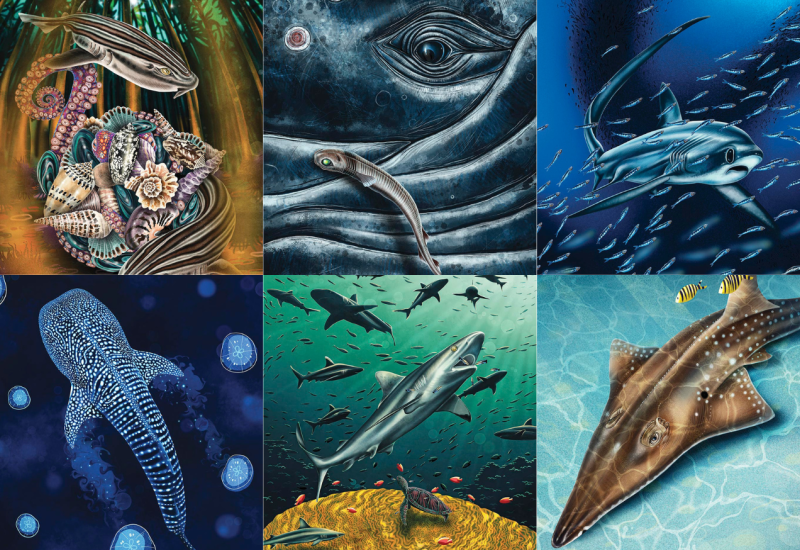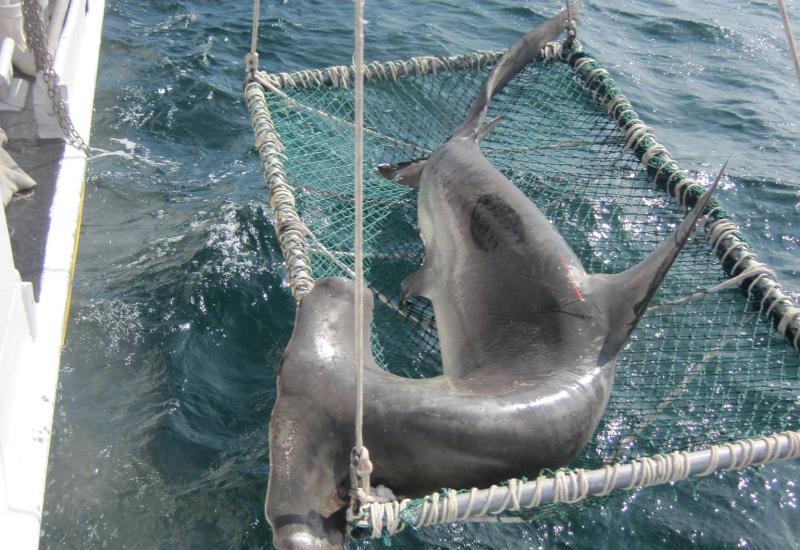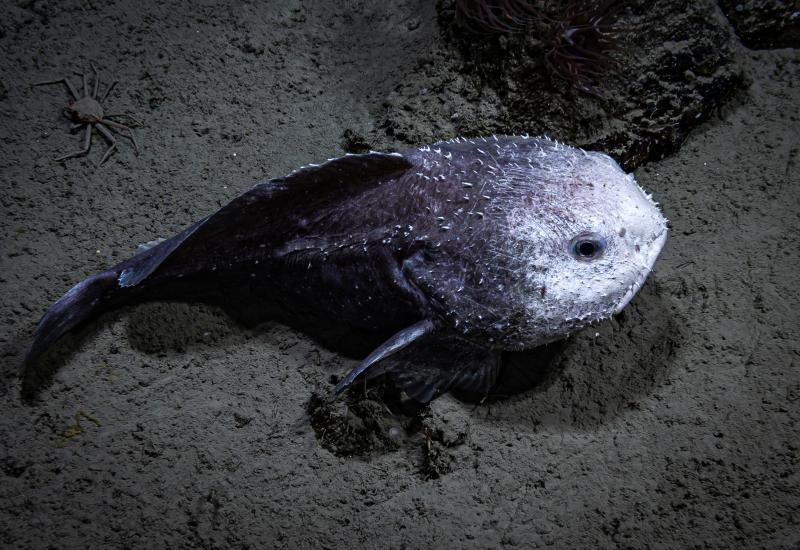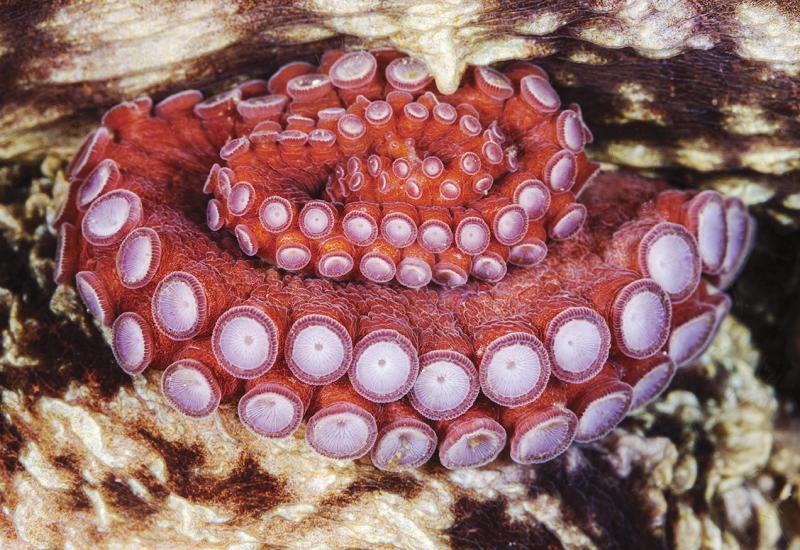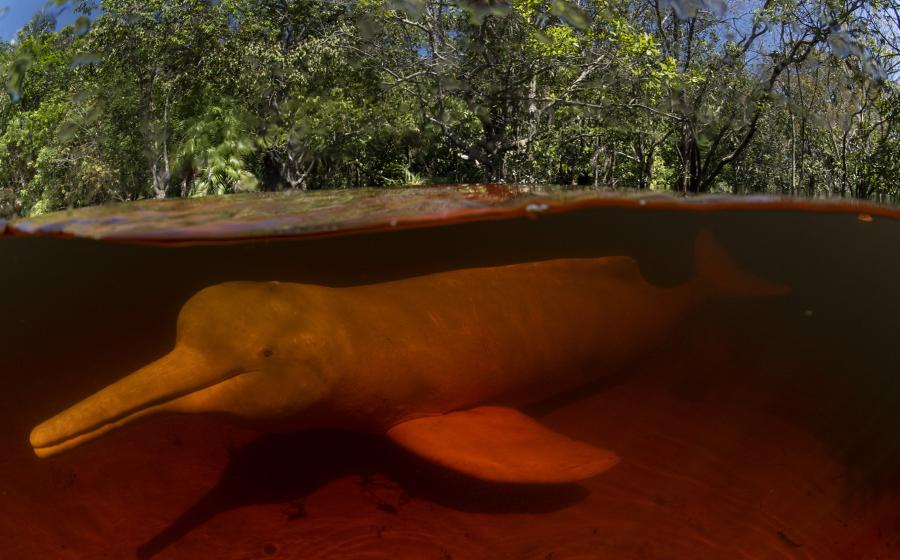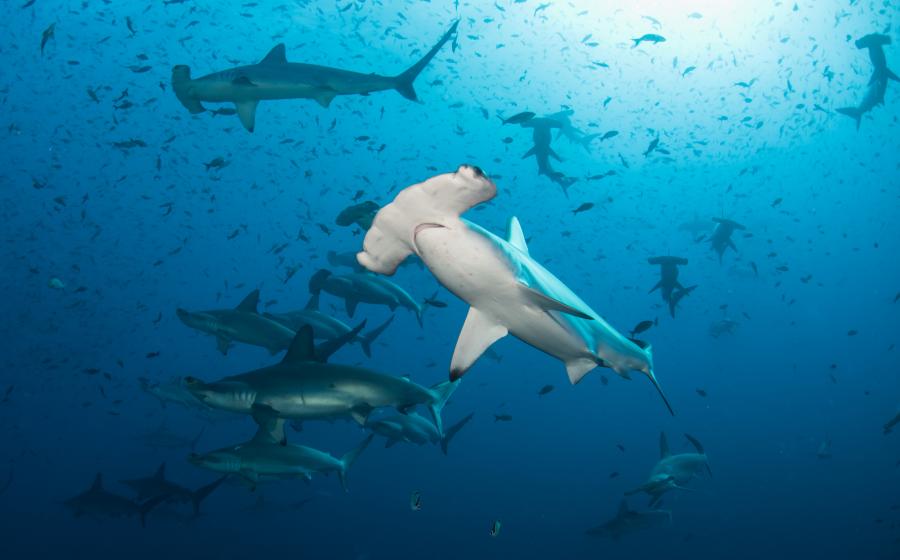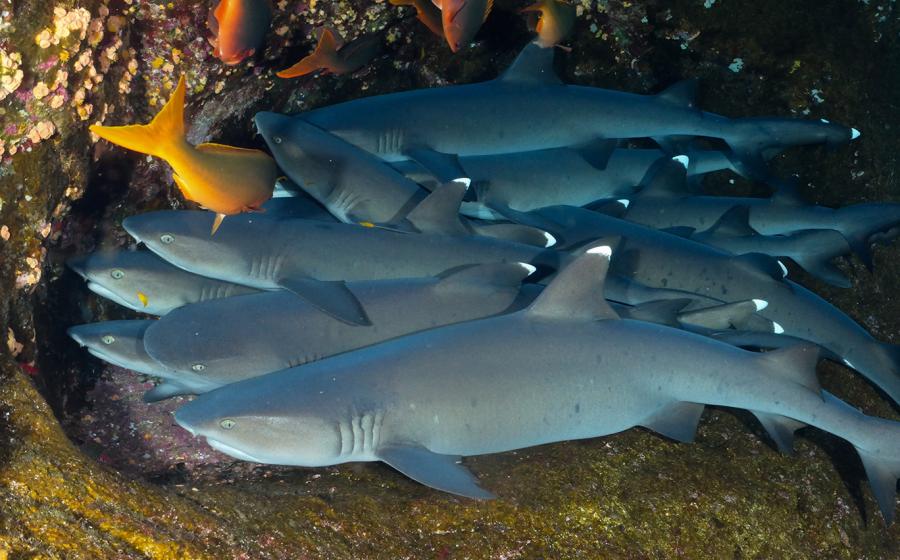Interesting Facts about Broadnose Sevengill Sharks
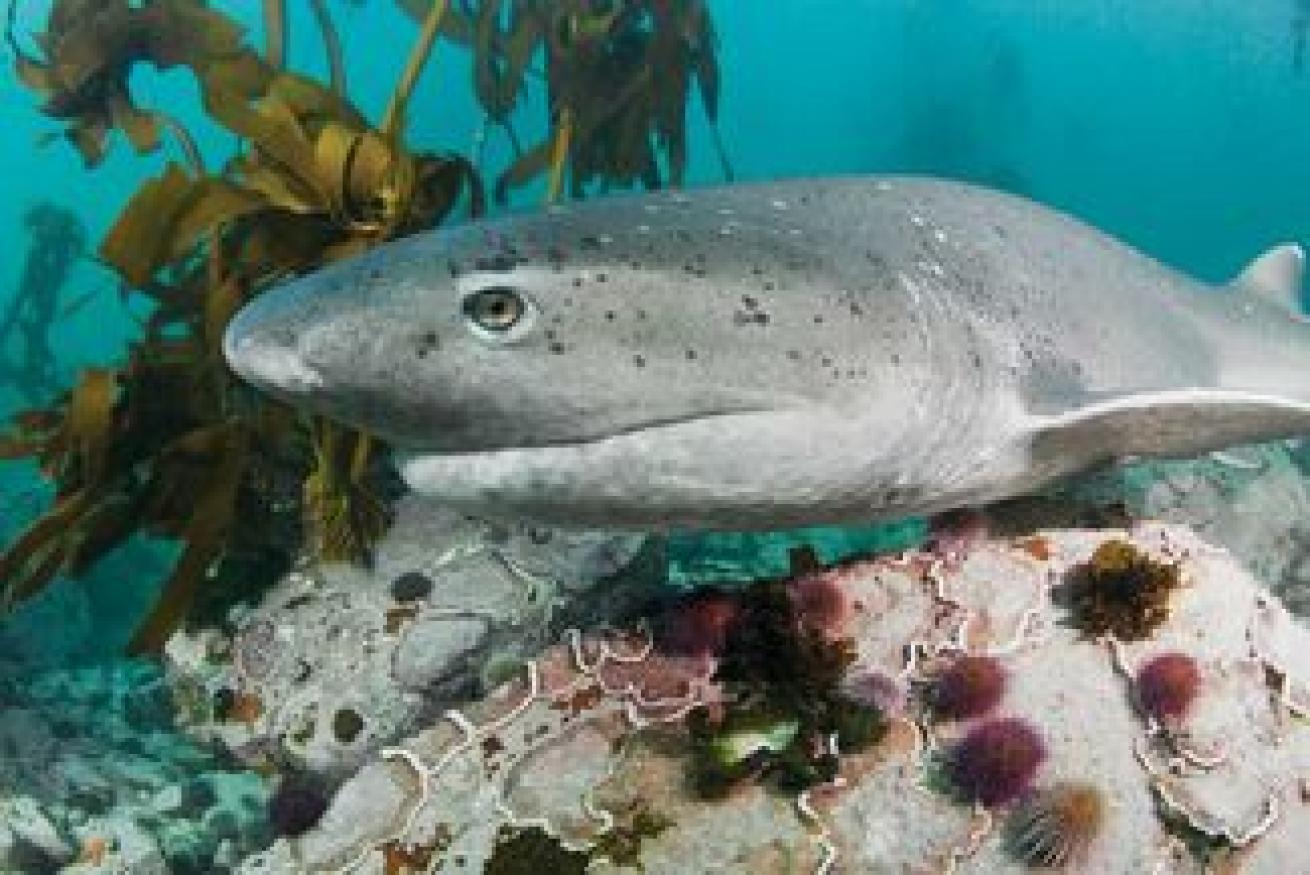
Jacques De VosBroadnose Sevengill
The broadnose sevengill shark is one of four species of the cow shark (family Hexanchidae). Though they generally inhabit deeper water, divers regularly encounter them in South Africa and along parts of the U.S. Pacific Coast. They usually stick to the bottom but sometimes venture to the surface, and have even been seen poking their heads out of the water to look around. These brown-gray sharks with small black spots eat mostly fish (including other sharks) and marine mammals, but they are somewhat aggressive and have been responsible for a few bites to humans.
Related Reading: Discovering Patagonia's Winged Comb Jelly
Broadnose sevengill sharks were heavily fished in California in the 1980s, as their meat is considered palatable, and their liver oil and tough skin are also valuable. They are also considered a good “fighting” fish by recreational anglers.
Interesting Facts about Broadnose Sevengill Sharks
Where to Find Them: In coastal waters
Threat Level: IUCN Red List Data Deficient globally; East Pacific subpopulation (Mexico, western United States), Near Threatened
Maximum Size: 296 centimeters (about 10 feet)
More Interesting Facts:
• They have seven gill slits (most sharks have five).
• Believed to be reproductively mature by five years old, they produce litters of up to 82 pups and can live up to 30 years.
• Their shallow coastal habitats make them vulnerable to bycatch and pollution.
• They hunt cooperatively.
• The upper teeth are jagged; the lower teeth are comb-shaped.
• They have just one dorsal fin (most sharks have two).
Related Reading: 7 Liveaboards to Book if You Love to Learn
Love scuba diving with sharks? So do we. For more, visit the Sharks section of our website.
David Shiffman is a Ph.D. student at the University of Miami’s Abess Center for Ecosystem Science and Policy, where he studies shark ecology and conservation. Shiffman is happy to answer any questions you have about sharks on Twitter (@WhySharksMatter) or Facebook (facebook.com/WhySharksMatter).

